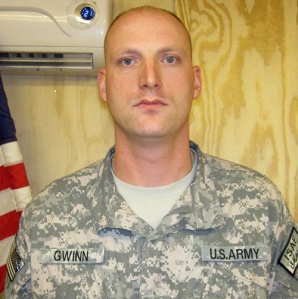
Staff Sgt. Andrew St. John, Indiana Army National Guard (photo: ING)
Indiana Army National Guardsman Staff Sgt. Andrew St. John, 29, died in a military training accident at Fort Hood, Texas on August 15, 2019. According to media reports the incident was described as a tactical vehicle accident or a humvee rollover. Staff Sgt. St. John served in the Army National Guard for 10 years and was an infantryman with Company B, 1st Battalion, 151st Infantry Regiment. Staff Sgt. St. John’s obituary stated “during his service, he served in the Haiti Humanitarian Effort, the War in Afghanistan, and the Iraq War. Most recently, he took a position as Observed Controller/Trainer (OCT) training fellow service members in an operation named Wolf. Additionally, Andrew had taken classes at Central Nine in Greenwood, receiving his state certification for EMT and Firefighter. When able, he volunteered at Nineveh Fire Department.”
At the time of reporting, the cause of death was under investigation but the outcome of the investigation is not available on-line. WTHR reported Staff Sgt. St. John grew up in Martinsville, Indiana and graduated from Martinsville High School in 2009. They said his senior year he was crowned as prom king; he was often referred to as the “life of the party.” And Andrew St. John enjoyed golfing, riding his motorcycle and spending time with loved ones; he was a proud father of two children and a husband. In a statement issued by the Indiana National Guard, Lt. Col. Chad Pittman, commander of the 1st Battalion, 151st Infantry Regiment said, “He continually sought ways to ensure the success of subordinates, better himself as a leader, and contribute to the achievements of the organization. My deepest sympathy for his family at this sad and difficult time.”
“It’s important for us to realize these young men and women are all volunteers, and every one of those people serves and protects 100 people in the United States, it’s a 1 in 100 deal, 1 percent serves to protect the other 99 and people need to realize that’s a big commitment on young shoulders.” -Bruce McKee, Indiana Spirit of ’45 (Fox 59)
Related Links:
Obituary: SSG Andrew Michael St. John
Staff Sgt. Andrew Michael St. John, 29, dies at Ft. Hood
Greenwood man killed in Army accident
Army identifies Guardsman killed in training
Indiana Guardsman killed at Fort Hood was ‘proud father and husband’
Indiana National Guard Staff Sergeant from Greenwood dies in accident at Fort Hood
Indiana soldier, firefighter killed in military training accident in Texas
Greenwood Guard soldier who died in accident at Ft. Hood also local firefighter
Indiana National Guard soldier dies in training accident
Indiana National Guard soldier dies in tactical vehicle accident at Fort Hood
Indiana National Guard soldier dies in a tactical vehicle accident at Fort Hood
Decorated Indiana National Guard Soldier Dies During Fort Hood Training
Guard member who died after accident a Martinsville grad
Indiana National Guard soldier dies training at Fort Hood
Fort Hood: National Guard soldier dies in training accident
Indiana National Guard soldier dies training at Fort Hood
Public visitation planned for Indiana National Guard soldier who died in accident at Fort Hood
Indiana National Guard soldier who died in Fort Hood accident is identified
Soldier who died during Fort Hood training identified
Indiana National Guard soldier dies training at Fort Hood
Fatal Fort Hood training accident involved Humvee rollover
Indiana National Guard IDs Soldier Killed in Training Incident
Two Indiana soldiers have died in training accidents in the last 9 months
Four soldiers have been killed in military training accidents in the last week
Army Soldiers at Fort Hood in Texas Are Dying at Alarming Rates Stateside (January 1, 2016 to Present)
Salute to Fallen Foundation Honors Army Spc. Mason Webber; Vinton Today is First Publication to Honor & Acknowledge the Fort Hood Fallen (July 20, 2020)
Nineveh Fire Department Message | Facebook (August 21, 2019)






 Guest Post by Liz Ullman:
Guest Post by Liz Ullman:

